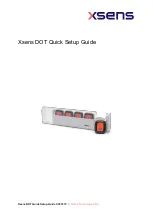
Proline Promass S 100
Hauser
35
Base repeatability
Mass flow and volume flow (liquids)
±0.05 % o.r.
Mass flow (gases)
±0.25 % o.r.
Density (liquids)
±0.00025 g/cm
3
Temperature
±0.25 °C ± 0.0025 · T °C (±0.45 °F±0.0015 · (T–32) °F)
Response time
The response time depends on the configuration (damping).
Influence of ambient
temperature
o.r. = of reading; o.f.s. = of full scale value
Current output
Temperature coefficient
Max. ±50 ppm/°C o.f.s. or ±1 µA/°C
Pulse/frequency output
Temperature coefficient
Max. ±50 ppm o.r. /100 °C
Influence of medium
temperature
Mass flow and volume flow
When there is a difference between the temperature for zero point adjustment and the process
temperature, the typical measured error of the sensor is ±0.0002 % of the full scale value/°C
(±0.0001 % of the full scale value/°F).
Density
When there is a difference between the density calibration temperature and the process
temperature, the typical measured error of the sensor is ±0.0001 g/cm
3
/°C (±0.00005 g/cm
3
/°F).
Field density calibration is possible.
Wide-range density specification (special density calibration)
If the process temperature is outside the valid range (→ 33) the measured error is
±0.0001 g/cm
3
/°C (±0.00005 g/cm
3
/°F)
[kg/m ]
3
[°C]
-40
0
-80
40
80 120 160 200 240 280 320 [°F]
-50
0
50
100
150
0
2
4
6
8
10
14
12
1
2
A0016611
1
Field density calibration, for example at +20 °C (+68 °F)
2
Special density calibration
Summary of Contents for Proline Promass S 100
Page 3: ...Proline Promass S 100 Endress Hauser 3 Registered trademarks 76...
Page 77: ......
Page 78: ......
Page 79: ......
Page 80: ...www addresses endress com...
















































